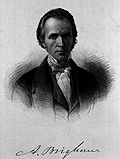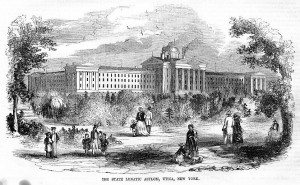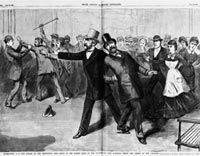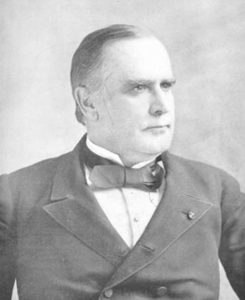
Dr. Amariah Brigham
By 1903, American psychiatrists had held formal meetings for many years, first as a select group of insane asylum superintendents, then as the more inclusive American Medico-Psychological Association. One striking characteristic of psychiatrists at that time was a confidence in their ability to understand the causes of insanity and the best treatments for it.
One very prominent psychiatrist, Dr. Amariah Brigham, testified in court that he could recognize insanity on sight. He had been called as an expert witness in the case of a murderer whom the defense characterized as idiotic and demented. Brigham had not been allowed to speak to the prisoner or examine him in order to make an informed diagnosis, so the prosecution tried to shake Brigham concerning his ability to diagnose insanity by sight.
As “proof” that he could indeed make this kind of diagnosis, Brigham, at the direction of the court, scanned the crowd attending the trial so that he could pick out a lunatic. Eventually, he pointed to a man in the audience and pronounced him insane. The man reacted with wild gestures, shouting and cursing Brigham for calling him insane–which was taken as proof that he was. Brigham followed through with his testimony concerning the defendant, and though the man was found guilty, he was sentenced to prison instead of being executed.
An account of this episode is found in the “Proceedings of the American-Medico Association,” 1903.

State Insane Asylum, Utica, New York (Brigham was its first superintendent)
______________________________________________________________________________________



